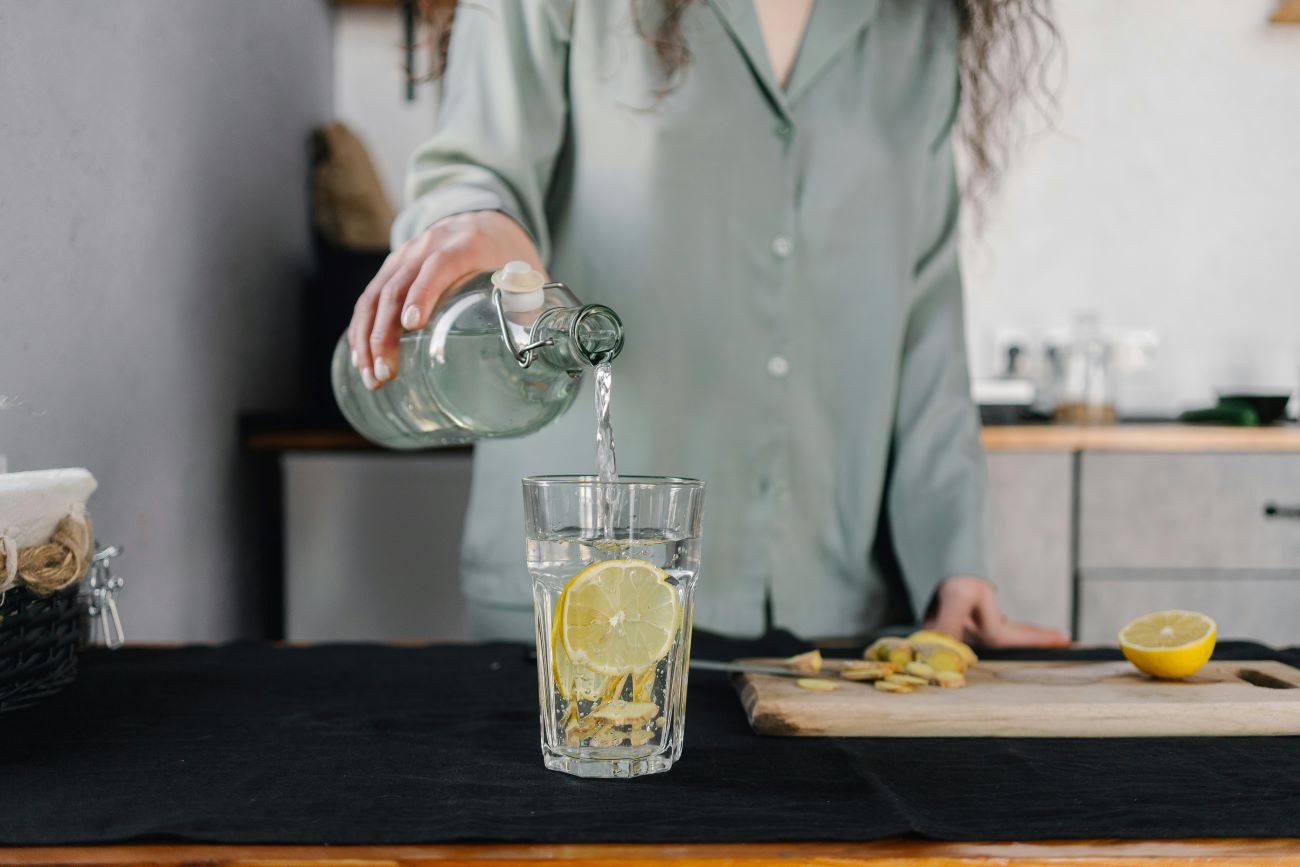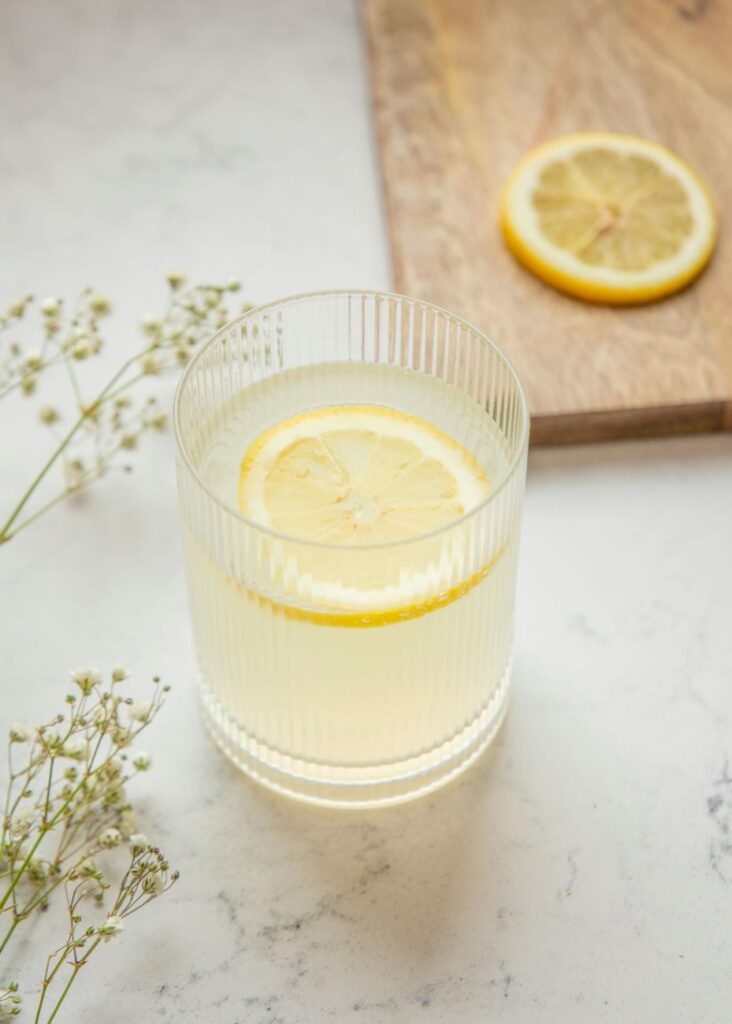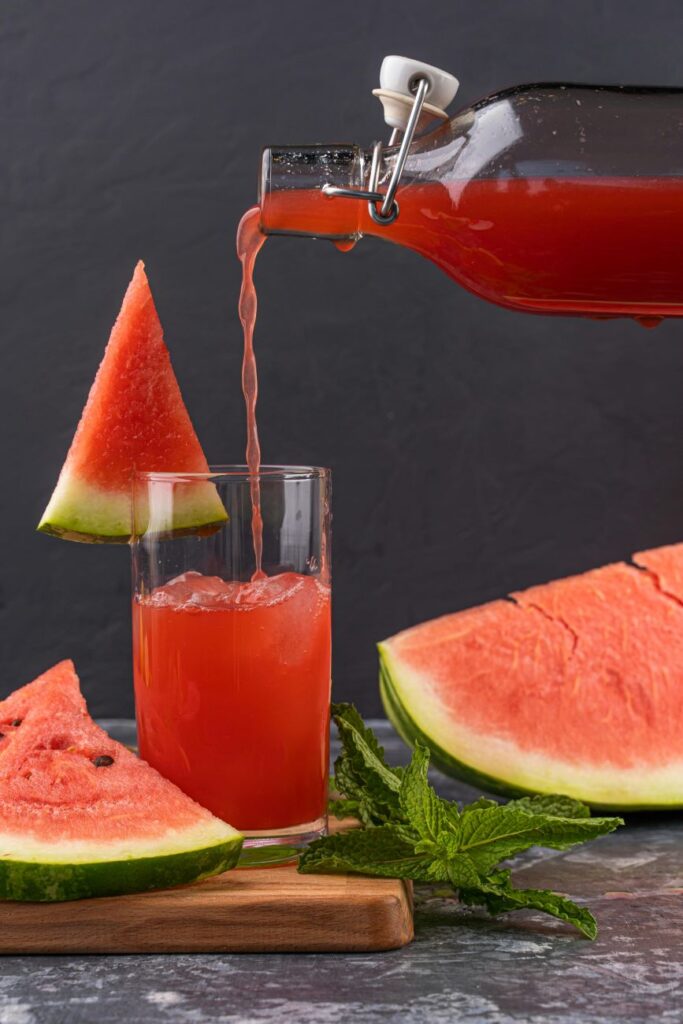All About Hydration

July 20, 2025
It’s summer. It’s hot out and we are all spending more time outdoors. During these warmer months, it is especially important to stay well-hydrated. Proper hydration is one of the foundations for good health. The body is 55-60% water. So, water contributes to basically every system in our body. Proper hydration has impacts on mental clarity, energy levels, the body’s ability to maintain healthy detoxification systems, kidney function, cardiovascular function, and proper lymphatic health. Dehydration can lead to muscle cramping, mental and physical fatigue, headaches and can contribute to aggravation of an existing condition.
So, what exactly does “proper hydration” look like? And how can we hydrate ourselves in an optimal way that not just prevents dehydration, but also promotes our general well- being? The answer to this question lies in how much we drink, when we drink and what we drink to hydrate ourselves.
How much water should I drink each day?
A good rule of thumb is to drink roughly one third to one half your body weight in ounces each day. That would mean a 150lb person would need to drink 50 to 75 ounces of water per day. Water lost during exercise and sauna therapy also needs to be replaced. Of course, there are exceptions to this, and this amount depends on your own personal health issues. This is a general guideline and it is always good to speak with your doctor with questions about the right amount of fluid for your personal health.

What beverages count toward my daily hydration intake?
Water, herbal tea, juice and sparkling water all contribute to our daily hydration. Caffeinated beverages and alcohol are dehydrating and do not count toward our daily hydration.
When is the best time to hydrate?
It is best to drink the majority of your fluids between meals, rather than with meals. Cold water and ice water in particular with meals can dilute important digestive enzymes and hydrochloric acid needed for proper digestion. This does not mean you cannot have water with meals; it simply means to have a smaller serving of water, herbal tea or sparkling water with meals such as four to six ounces. To avoid waking in the night, it is best to stop hydrating one hour before bed. Some sensitive individuals will need to stop hydrating up to three hours before bed. This depends on your personal health. Discuss the timing of your hydration with your doctor if you have questions or concerns.
It is also a good practice to hydrate while performing rigorous exercise that involves
sweating and an elevated heart rate for a prolonged period of time. It is a good practice
to replace what you sweat out as you exercise to avoid dehydration.
Should I add electrolytes to my water?
Adding electrolytes to your water is also a good way to maintain electrolyte balance if you are especially active and sweat regularly. Good electrolyte products have a balance of sodium, chloride, as well as potassium and magnesium. Many products on the market have a small amount of sodium, potassium, chloride and magnesium. These are generally safe to consume one to two servings per day.
There are also specific types of electrolyte products that contain upwards of 1000mg of sodium or more per serving. This is a much higher dose than most products. This can be helpful in certain cases of POTS (Postural Orthostatic Tachycardia Syndrome) and certain types of adrenal insufficiency. Some individuals, however, are salt sensitive and sodium can raise blood pressure and cause swelling (edema), so it is best to speak with your doctor before starting a higher sodium electrolyte product to determine if it is right for you.
Can I make my own electrolytes?
You can! Add Himalayan salt, Celtic salt or sea salt to 16-32 ounces of water until it tastes just lightly salty to you. This is an effective and inexpensive way to add electrolytes to your water. Adding in a squeeze of fresh citrus to your water will also add vitamin C and improve the taste. For potassium, you can add ¼ to 1 teaspoon of cream of tartar or ¼ cup of non-sweetened coconut water to the mix. The three of these
ingredients blend well into a homemade electrolyte and can be consumed in this ratio 1-
2 times per day.
Here is our favorite summertime recipe to keep you hydrated. Watermelon and citrus are both high in vitamin C, which is great for supporting the immune system and mint is a cooling herb which is helpful in the heat of the summer.

Watermelon Cooler
Ingredients:
1 bunch of mint
1 lime
¼ small watermelon
Water
Directions:
Juice 1 lime and place in a blender. Add in ¼ of a small watermelon (without the rind) to
the blender. Put in a handful of fresh mint. Add water to cover the ingredients completely, approximately 8-16 ounces. Blend on high for one minute. Serve chilled or over ice. May also add ice to the blender.
Makes 1-2 servings. Enjoy and stay well-hydrated.
Written by Dr. Brooke Bodeen
Naturopathic Physician
Dr. Brooke Bodeen is a Naturopathic Physician specializing in root-cause healing, chronic illness, and holistic therapies including cranial sacral therapy, botanical medicine, homeopathy, and nutritional guidance. With a background in both medicine and mindfulness, she combines clinical expertise with a compassionate, team-based approach to wellness. When she’s not caring for patients, Dr. Bodeen enjoys cooking, spending time with family, and exploring the outdoors of the Pacific Northwest.
Leave a Reply Cancel reply
2022 C Alive Integrative Medicine | All Rights Reserved
Website Designed by Anu Creative Co.
311 W. 13th Ave.
Eugene, OR 97401
ph: 541-636-3079
f: 866-898-9393